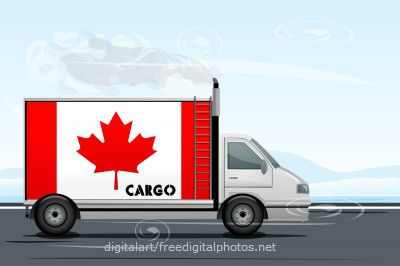|
Get Free Moving Quotes
|
|
Immigrating from the U.S. to Canada |
|
Rating : 0.0/5
262 Views
|
|
|
|
|
|
| Canada and America have a lot of things in common. They are two of the most culturally similar countries in the world. This fact, among other reasons, leads many Americans to consider leaving their native United States and heading north to immigrate to Canada. Immigrating to a new country is never a quick and easy process, however. There are things you should expect to do and subtle cultural differences to observe when moving to Canada.
What you need to immigrate to Canada
 Immigrating into Canada is generally a three step process. Immigrating into Canada is generally a three step process.
1. Apply, through a specific program, for permanent residency
2. After receiving permanent residency, live in Canada for three or four years, depending on the program you chose
3. Apply for citizenship and pass a test on English/ French and Canadian society
The last two steps are relatively straightforward, but it is the first step, choosing the correct immigration program that has the most options.
- The Skilled Worker class application is usually the easiest way for an American to become a Canadian. It is based on a points system. You receive a certain number of points towards being eligible for citizenship depending on your work history, education, intended job, age, proficiency in English or French, and criminal background. In May of last year the point values were adjusted; putting more emphasis on being able to speak English or French. As a result, a typical American English-speaker has a pretty good chance of being eligible through this program.
- The Family Sponsorship class application requires that you be sponsored by a Canadian citizen who is directly your family. A married significant other is most typical but parent-child relationships, or any dependent relationship, should also qualify.
- The Canadian Experience class is for foreign workers and students who have been working/studying in Canada. The workers need two years of work experience in Canada while the students need one year of work experience in Canada after having graduated from a post-secondary school in Canada. Both workers and students then need to pass a language test.
- The Provincial Nomination program has provinces specifically nominating an individual for citizenship. This is usually the case for rich or famous people who will instantly positively effect that province's economy by moving there.
- The Canada Federal Business/Investor program is all about being a wealthy business. An investor's net worth needs to be at least $1.6 million (that's Canadian dollars) and he must be willing to invest $800,000 in a business in Canada. Entrepreneurs need to employ Canadians in a business venture and be worth $300,000. Self-employed individuals need to be truly self sufficient and can only be artists, athletes, or farmers who enrich the local area.
- Quebec acts largely as its own country and has a different set of rules for immigration. Most Americans do not have Quebec in mind when thinking of moving to Canada because unlike most of the country, Quebec would be a truly foreign area to an American.
The paperwork is just one part of the immigration process. Immigration is nothing more than an international move, so you need to plan accordingly. Some movers may be able to cross the Canadian border by driving, so ask them ahead of time.
Once you do move to Canada there are several details to keep in mind. The culture of Canada is very similar to the United States', but there are a few subtle differences.
- Yes, you can refer to yourself as a current or former "American" to a Canadian. Most Canadians would never claim to be "American" and understand that it just a quirk of the language and not a way of claiming two continents for yourself
- Some things are spelled differently. "Center" becomes "centre" and "neighbor" becomes "neighbour." However, British spelling is not always the rule in Canada. Most words like "organization" are spelled with the American "z" rather than the British "s." Online guides should be able to help with most questionable words, but after some time you will adjust to the language
- Gun laws are more strict in Canada than the U.S, yet hunting is still allowed and is a common hobby in rural Canada
- Some social taboos are slightly different. Basic television in Canada is more apt to show nudity, but is also likely to censor excessive violence, especially directed towards women
- There is a subtle Canadian accent when speaking English, but you need not worry about a Canadian not understanding a typical English-speaking American
- Canada has a Prime Minister, not a President. It also has ties to Britain's monarchy but those are largely ceremonial. Don't worry about the Queen telling you what to do
Canada is a slightly different place to live in than the United states, but if it wasn't, then why would Americans bother moving there? It is the subtle differences in government and culture that likely drive most Americans to immigrate to Canada. Those who do decide to immigrate are moving to one of the happiest places in the world. |
|
 |
Author : Mike Sannitti
on July 1, 2014
TopMoving.ca - Moving Expert
|
| |